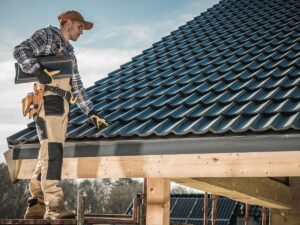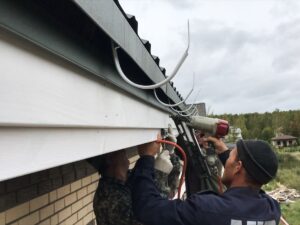In Downingtown, PA, spring and fall are the best seasons for roofing installations due to moderate temperatures that protect materials and ensure contractor efficiency. Spring’s mild climate supports adhesive setting, while fall offers stable weather for quality workmanship. The different seasons offer a balance. They provide suitable circumstances while also ensuring the availability of contractors. The summer and winter seasons bring difficulties such as heat damage & materials becoming brittle. However the off-peak seasons could provide opportunities for cost savings. If you want to learn more about getting the most out of your roofing investment there is additional helpful information available.
Key Takeaways
- Fall offers moderate temperatures, enhancing roofing material performance and longevity.
- Spring provides optimal conditions for material adherence and settling with minimal weather delays.
- Off-peak seasons, like late fall and winter, can offer cost savings due to reduced demand.
- Scheduling during moderate weather seasons decreases the risk of heat or cold-related material issues.
- Planning projects in spring or fall ensures better contractor availability and quality workmanship.
Understanding Downingtown’s Climate and Its Impact on Roofing

Downingtown, Pennsylvania, experiences a climate that significantly influences roofing needs and considerations. That region experiences chilly winters & warm humid summers. This makes it important to plan properly for roof replacements.
In Downingtown, the fluctuating temperatures and precipitation levels can challenge roofing materials, making durability a key factor in selection. Roof replacement projects require attention to weather conditions, as they directly impact the integrity and longevity of a roof.
The hot summer months can lead to thermal expansion, affecting roofing materials, while cold winter temperatures may cause contraction, potentially leading to cracking or other damage. Additionally, the area’s precipitation—both rain and snow—can exacerbate wear and tear on roofing surfaces, necessitating timely replacements to prevent leaks and other issues.
Understanding these climatic influences helps homeowners and contractors in Downingtown make informed decisions, ensuring that roofs withstand the diverse weather conditions throughout the year.
The Pros and Cons of Winter Roofing Projects
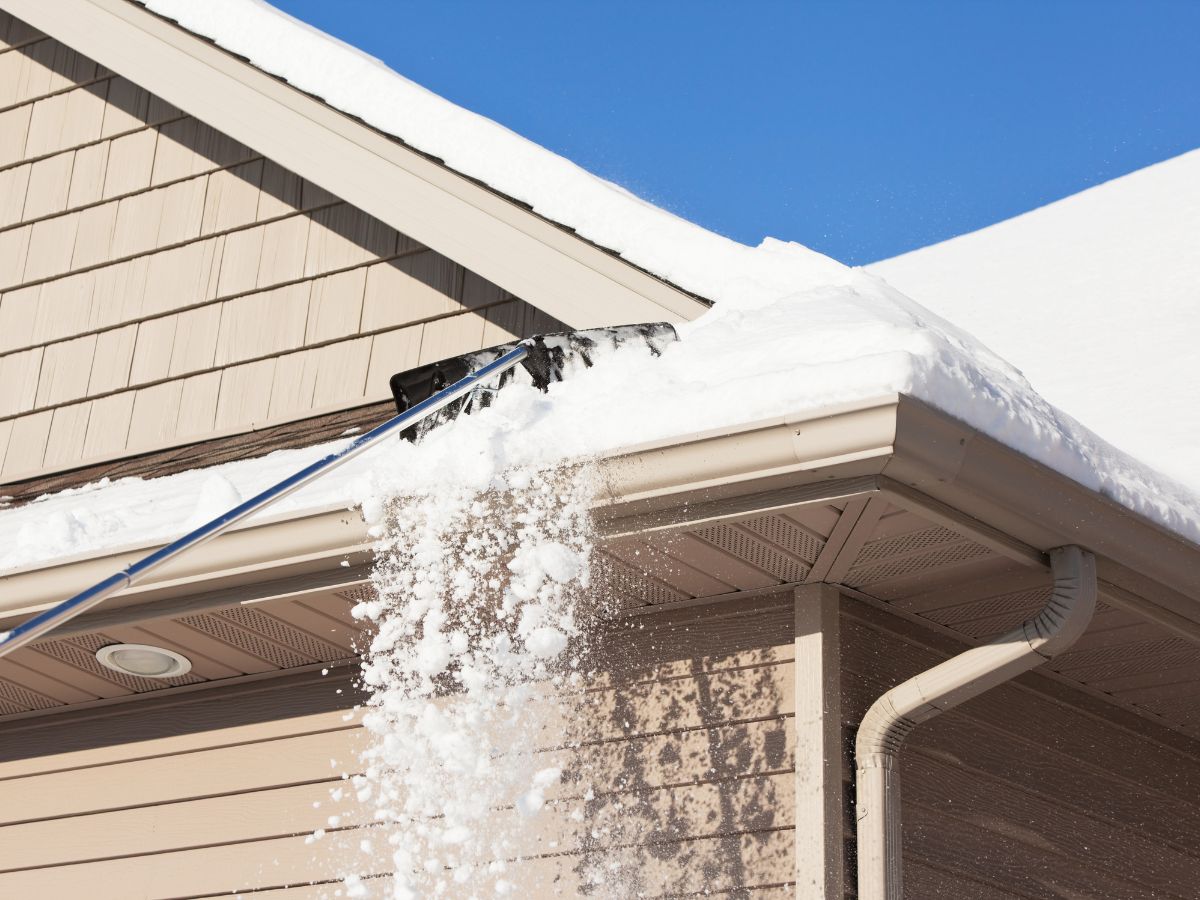
Winter season offers distinct benefits & difficulties for roofing tasks. It may not be the typical preference yet it has its merits. One distinct benefit is the potential for lower costs. During the winter months, roofing contractors often see a dip in demand, leading to more competitive pricing. Homeowners may find it easier to schedule their projects without long wait times, as contractors have more availability.
However, winter roofing also has its drawbacks. Cold temperatures can affect the performance of certain roofing materials, such as shingles, which may become brittle and harder to install. Additionally, snow and ice can create hazardous working conditions, increasing the risk of accidents and potentially delaying the project.
Despite these challenges, experienced roofing professionals can navigate winter conditions effectively. They employ specialized techniques and equipment to ensure a safe and efficient installation.
Ultimately, the decision to undertake a winter roofing project should weigh these pros and cons carefully.
Springtime Roofing: Balancing Weather and Contractor Demand

As winter’s chill gives way to the milder temperatures of spring, roofing projects find a sweet spot where weather conditions and contractor availability align more favorably.
For those considering roofing in Downingtown, PA, springtime roofing offers distinct advantages. The moderate weather reduces risks of weather-related delays and provides optimal conditions for roofing materials to settle and adhere properly. This ensures a more durable and long-lasting installation.
However, it’s important to note that spring’s favorable conditions also lead to increased demand for roofing contractors. Homeowners should plan and schedule their projects in advance to secure the best contractors before their calendars fill up.
The key to successful springtime roofing lies in balancing the ideal weather conditions with the potential for higher contractor demand. By planning ahead, homeowners in Downingtown can ensure their roofing projects are completed efficiently, avoiding the rush and potential price increases of peak seasons.
Summer Roofing: High Temperatures and Their Effects

How does the summer heat impact roofing projects?
During summer, temperatures can reach levels that challenge both roofing materials and workers. High temperatures may lead to asphalt shingles becoming too pliable, risking damage under the weight of roofers or equipment.
Moreover, extreme heat can cause adhesives to become overly sticky, complicating installation procedures. The health and safety of roofing crews are also at risk, as they face potential heat exhaustion and dehydration.
- Concern for worker safety: Elevated temperatures can lead to serious health risks for workers.
- Material vulnerability: Asphalt shingles can warp or be damaged when overheated.
- Installation delays: Heat can slow down the work, extending project timelines.
- Increased costs: Potential for additional expenses due to heat-related complications.
- Customer frustration: Delays and potential damage can lead to dissatisfaction.
Understanding these effects helps homeowners make informed decisions about summer roofing projects, balancing timing and quality.
Fall Roofing: Optimal Weather and Contractor Availability
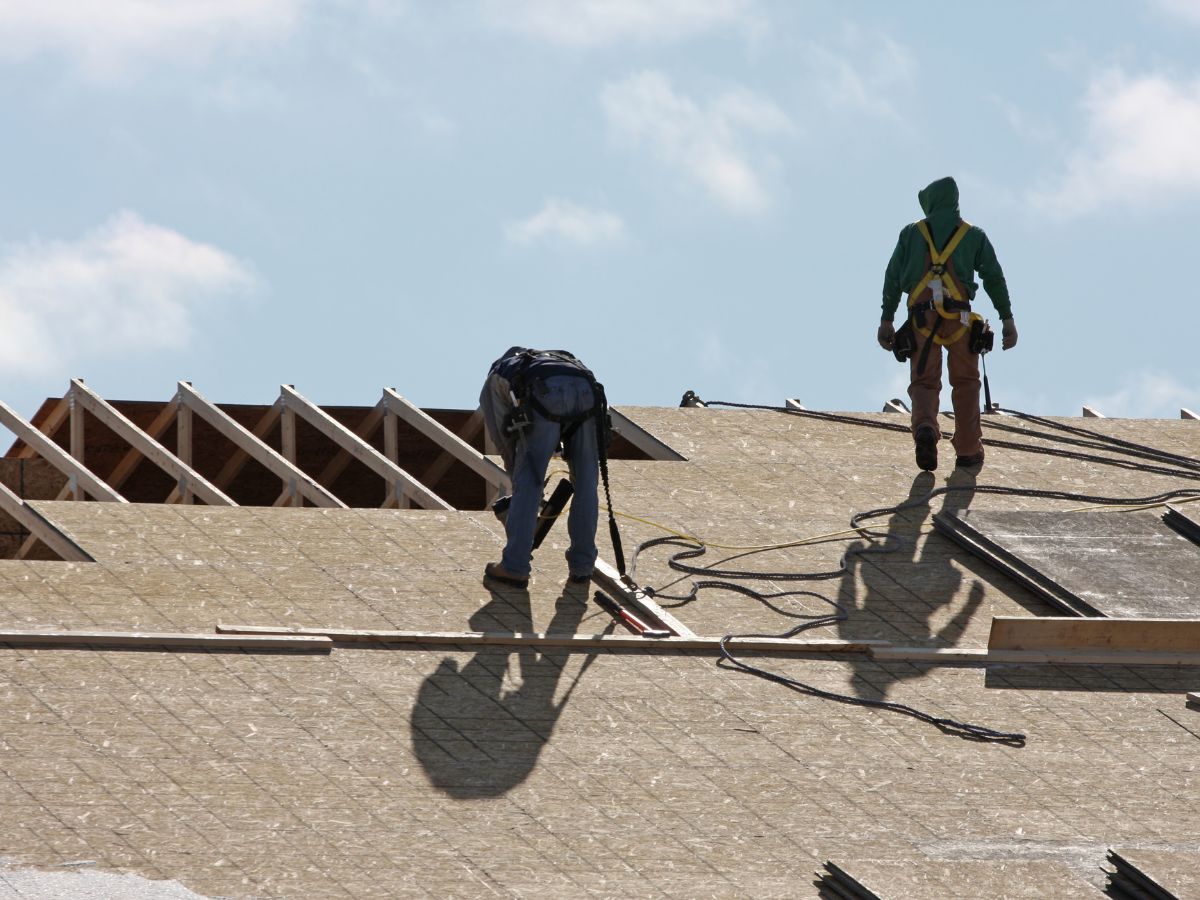
Why is fall considered the ideal season for roofing projects in Downingtown, PA?
During fall, temperatures are moderate, creating optimal conditions for fall roofing. The cool and stable weather allows roofing materials to settle and adhere properly, enhancing the longevity of roofs.
Unlike summer’s heat, which can cause materials to expand, or winter’s chill, which might lead to brittleness, fall strikes a balance that is favorable for installation.
Additionally, contractor availability tends to be higher in the fall. Many homeowners prefer spring and summer for renovation projects, often leaving contractors less booked during the autumn months.
This increased availability allows homeowners to schedule projects with greater flexibility and potentially benefit from competitive pricing.
As contractors are less rushed, they can focus on delivering quality workmanship, ensuring that the roofing is completed to the highest standards.
Fall, therefore, presents a strategic opportunity for roofing projects in Downingtown, PA.
Weather-Related Challenges in Roofing Projects
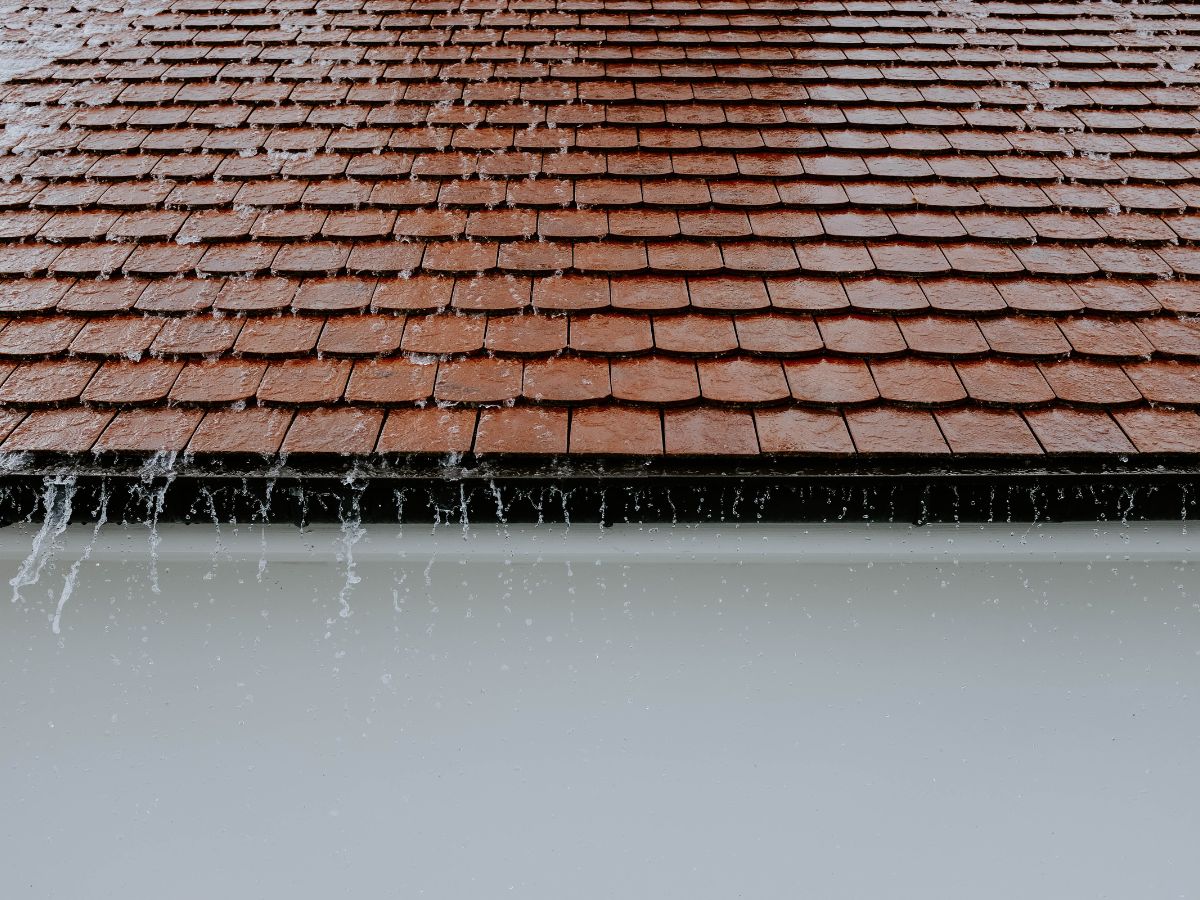
Although roofing projects are essential for maintaining the integrity of a structure, they often face significant weather-related challenges that can impact their success. Each season poses unique difficulties that contractors must navigate to ensure timely and efficient installations.
In Downingtown, PA, unpredictable weather conditions can exacerbate these challenges, making it crucial for homeowners and contractors to understand potential obstacles.
- Heavy Rainfall: Unexpected downpours can delay projects and damage materials.
- Strong Winds: Gusty conditions can pose safety risks and complicate installations.
- Snow and Ice: Winter weather can halt progress and create hazardous working conditions.
- High Humidity: Excess moisture can affect the roofing materials’ integrity, leading to long-term issues.
- Temperature Extremes: Both hot and cold temperatures can impact material performance and worker efficiency.
Understanding these challenges enables better planning and timing of roofing projects, ensuring the long-term durability and safety of the structure.
Contractor Availability Throughout the Year

In Downingtown, PA, the availability of roofing contractors fluctuates throughout the year due to seasonal demand and weather conditions.
During the spring and summer months, contractor availability is typically limited as these seasons are peak periods for roofing projects. Homeowners often prefer these warmer months for installation and repairs, leading to increased demand. Consequently, scheduling services during this time may require advance planning.
In contrast, the fall season offers a moderate level of availability. The weather remains conducive for roofing tasks, but demand begins to taper off, making it potentially easier to secure a contractor.
Winter, however, presents a unique scenario. Although cold and inclement weather can impede roofing activities, contractors may have more open schedules. This period can be advantageous for those seeking prompt service.
However, it is crucial to recognize that contractor availability does not necessarily equate to ideal conditions for all types of roofing work.
Material Performance Across Different Seasons

Roofing materials in Downingtown, PA, demonstrate varied performance characteristics depending on the season.
During the winter, cold temperatures can cause shingles to become brittle, potentially leading to cracking. In contrast, the heat of summer can cause certain materials, like asphalt, to soften, possibly affecting their durability.
Spring’s frequent rains may challenge the waterproofing capabilities of some roofing materials, while autumn’s fluctuating temperatures can test a material’s ability to expand and contract without losing integrity.
Understanding how each material reacts to seasonal changes is crucial for optimal roof performance.
- Worry about winter cracks affecting your home’s protection
- Concern over summer heat diminishing material lifespan
- Fear of spring rains revealing leaks
- Anxiety over autumn’s temperature swings causing damage
- Relief in knowing the right season can enhance material durability
Selecting materials with proven seasonal performance ensures a roof that endures, providing peace of mind year-round.
Cost Implications of Seasonal Roofing

Understanding the cost implications of seasonal roofing is essential for homeowners aiming to manage their budgets effectively. Roofing expenses in Downingtown, PA, can fluctuate based on the time of year due to supply and demand dynamics.
During peak seasons, such as late spring and summer, costs might soar as contractors become busier, squeezing out availability and pushing prices upwards. Conversely, the off-season, which includes late fall and winter, may offer reduced costs as demand wanes. Contractors may offer discounts to attract business during these slower periods.
However, inclement weather can delay projects, potentially impacting overall costs negatively.
Additionally, material prices can vary seasonally. For instance, demand spikes in spring may drive prices higher. Homeowners should weigh these factors against potential savings and project timelines.
Understanding these cost dynamics helps in making informed decisions and optimizing budget allocations for roofing projects, ensuring the best financial outcome across different seasons.
Tips for Planning Your Roofing Project in Downingtown

Successful planning is crucial for any roofing project in Downingtown. Understanding the best time of year to replace your roof can make a significant difference in both cost and efficiency.
Ideally, homeowners should aim for spring or fall, when temperatures are moderate, minimizing stress on materials and workers. By planning ahead, individuals can avoid the rush of peak seasons and secure the best contractors.
To assist in the planning process, consider the following:
- Research Local Contractors: Find reputable professionals with experience in the Downingtown area.
- Schedule Consultations Early: Early discussions ensure timely project initiation.
- Budget Wisely: Allocate funds for unforeseen expenses; roofing projects can be unpredictable.
- Monitor Weather Patterns: Prioritize periods with stable weather for optimal installation.
- Understand Material Needs: Different materials behave differently; choose those suited for your climate.
Incorporating these considerations can lead to a smooth, efficient roofing project that stands the test of time.
Final Thoughts
Planning a roofing project in Downingtown, PA, requires careful consideration of seasonal conditions, contractor availability, and cost implications. While spring and fall offer the most favorable weather for installations, off-peak seasons may provide cost savings for those willing to navigate potential challenges. Understanding how climate affects roofing materials and scheduling projects accordingly ensures a durable, high-quality roof that withstands the region’s varying weather conditions. By making informed decisions and working with experienced contractors, homeowners can maximize their investment and achieve long-term protection for their homes.




